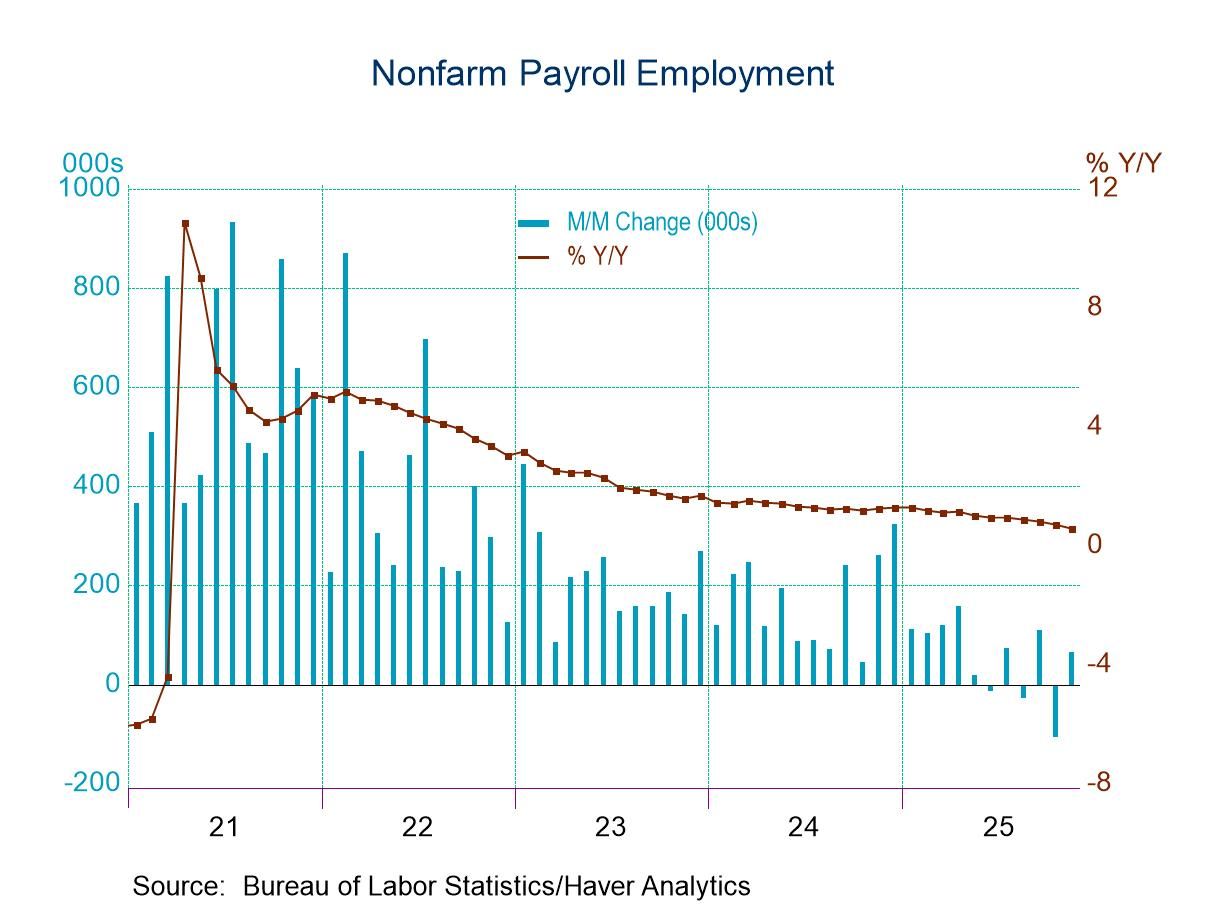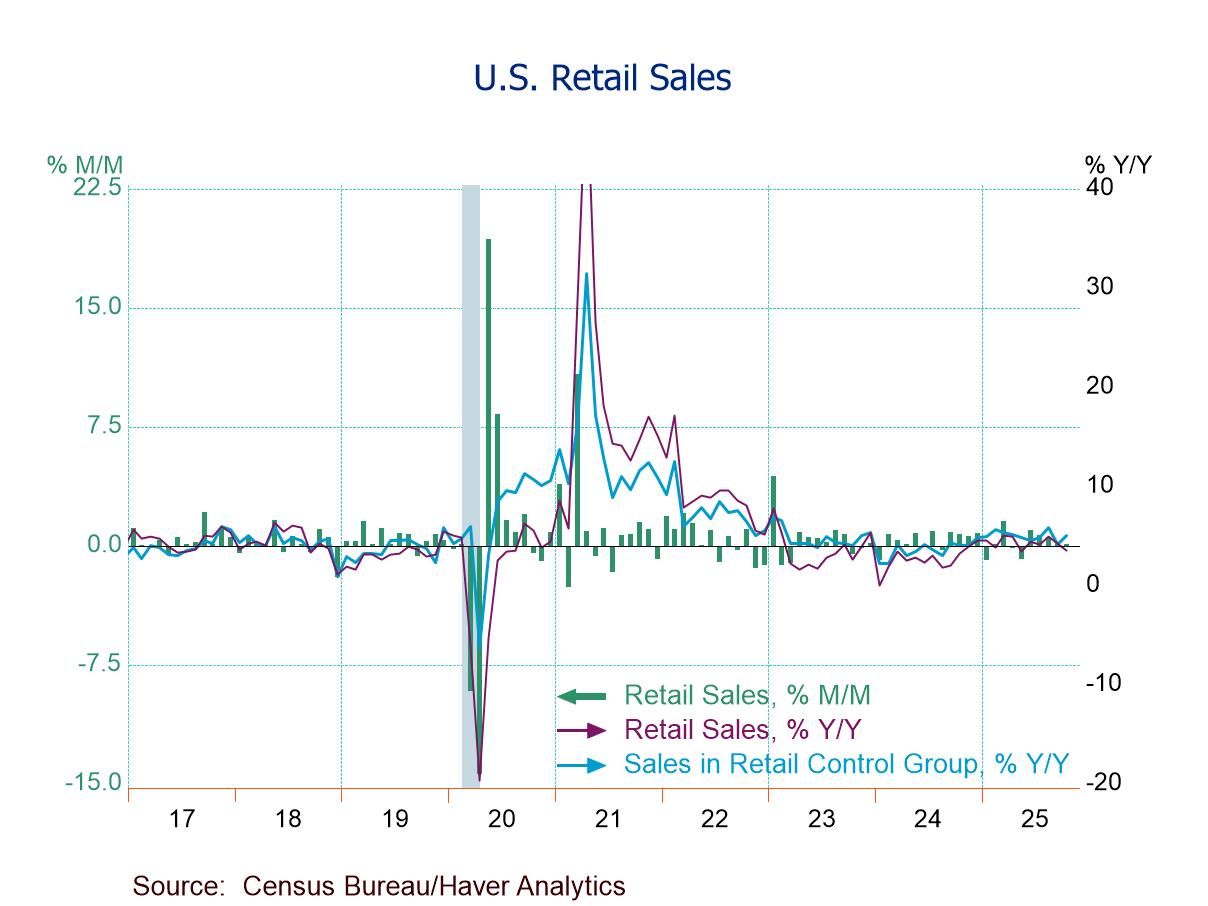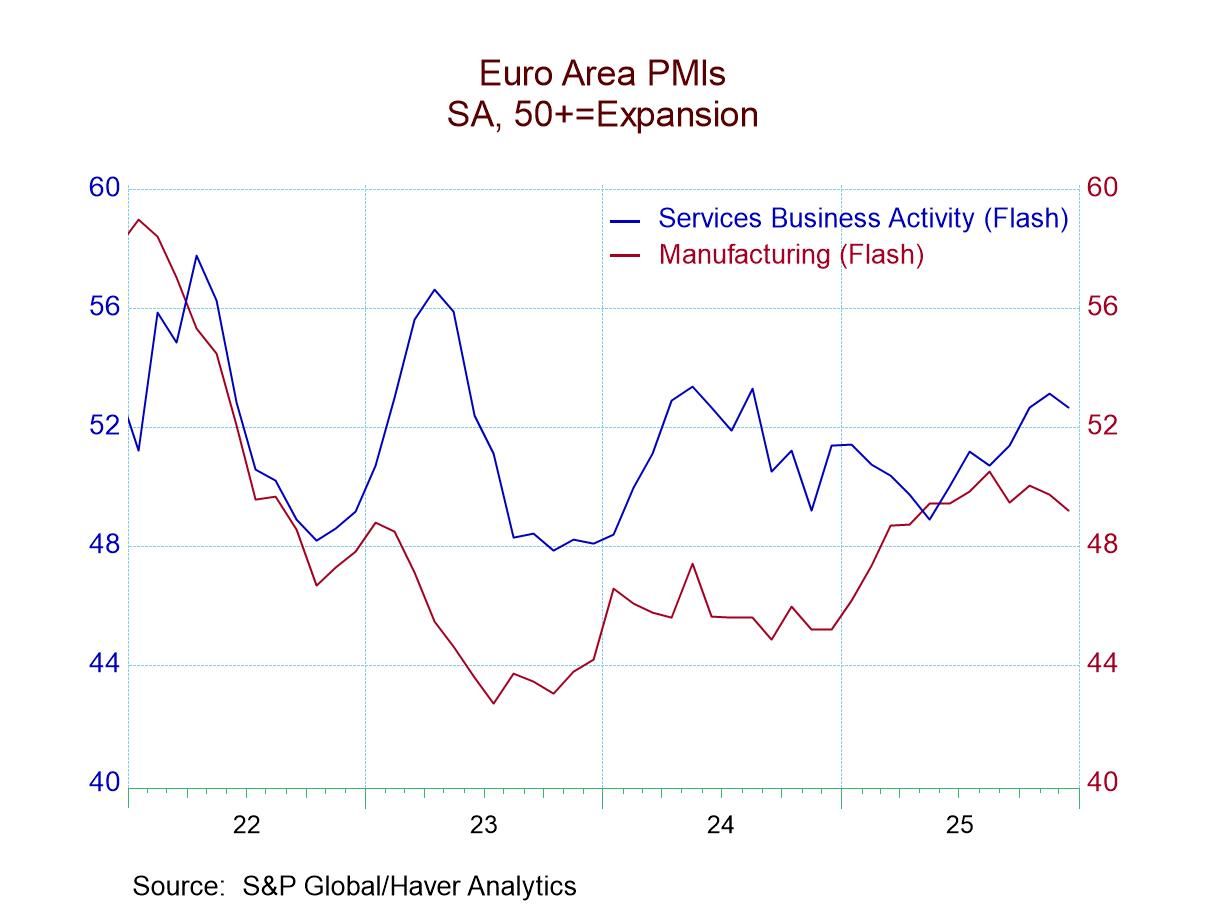 Global| Jul 14 2009
Global| Jul 14 2009U.S. Retail Sales Again Rise Due To Higher Gas Prices, But Trend Remains Weak
by:Tom Moeller
|in:Economy in Brief
Summary
Weak job growth and rising gasoline prices continued last month to constrain consumer spending. A 0.6% increase in June retail sales was near expectations and followed a little-revised 0.5% gain during May. However, except for a rise [...]
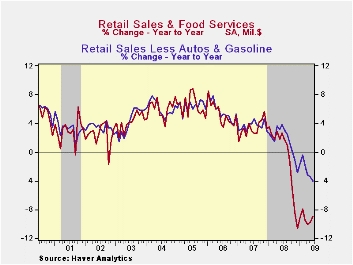
Weak job growth and rising gasoline prices continued last month to constrain consumer spending. A 0.6% increase in June retail sales was near expectations and followed a little-revised 0.5% gain during May. However, except for a rise in gasoline prices and a modest gain in auto sales, consumer spending slipped for the third straight month. The retail sales data are available in Haver's USECON database.
Auto sales did manage a 2.3% increase (-14.1% y/y) in dollar terms despite a slight decline in unit vehicle sales during the month. Without the auto sector, retail sales increased a modest 0.3%.
The latest retail sales figures have been dominated by higher prices for gasoline. Last month, sales of gasoline service stations jumped 5.0%, the same as they did during May. (Lower prices versus last year, however, did cause sales to fall by nearly one-third versus 2008.) The June gasoline sales gain was driven by a 16.1% (NSA) rise in the retail price for a gallon of gasoline to $2.63 per gallon.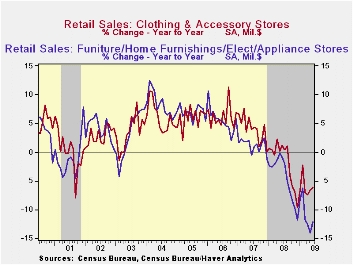
Emphasizing the persistent weakness in underlying consumer spending were retail sales excluding both autos and gasoline. They fell 0.2% (-4.0% y/y) last month for the fourth consecutive monthly decline. These sales have risen just at a 1.1% annual rate since December following last year's 2.8% 12-month decline.
Further evidence that discretionary spending remains under pressure was the slight 0.4% increase in sales at furniture, electronics & appliance stores (-12.0% y/y) which followed declines during the three prior months. Furniture store sales alone ticked up 0.2% (-12.6% y/y) while sales of electronics & appliances made up their May decline with a 0.9% increase (-11.5% y/y). So far this year, these sales have fallen at a 5.2% annual rate after last year's 4.5% decline. In the soft goods area, apparel store sales were unchanged (-6.2% y/y) while sales at general merchandise stores fell 0.4% for the fourth consecutive monthly decline (-3.0% y/y).
For the first month in five, internet and catalogue purchases rose. June sales of non-store retailers gained 0.6% (-6.7% y/y), after rising 2.8% in 2008 and 7.1% during 2007. Adding to the gloom, restaurant sales declined 0.9% last month, tempering restaurant sales gains so far this year to a 3.3% annual rate.
Building materials sales in fell 0.9% last month and they were down at a 7.4% annual rate since December.
Recourse and Residential Mortgage Default: Theory and Evidence from U.S. States from the Federal Reserve Bank of Richmond can be found here.
| June | May | April | Y/Y | 2008 | 2007 | 2006 | |
|---|---|---|---|---|---|---|---|
| Retail Sales & Food Services (%) | 0.6 | 0.5 | -0.3 | -9.0 | -0.7 | 3.3 | 5.3 |
| Excluding Autos | 0.3 | 0.4 | -0.3 | -7.9 | 2.5 | 3.9 | 6.3 |
| Less Gasoline | -0.2 | -0.1 | -0.3 | -4.0 | 1.6 | 3.6 | 5.7 |
Tom Moeller
AuthorMore in Author Profile »Prior to joining Haver Analytics in 2000, Mr. Moeller worked as the Economist at Chancellor Capital Management from 1985 to 1999. There, he developed comprehensive economic forecasts and interpreted economic data for equity and fixed income portfolio managers. Also at Chancellor, Mr. Moeller worked as an equity analyst and was responsible for researching and rating companies in the economically sensitive automobile and housing industries for investment in Chancellor’s equity portfolio. Prior to joining Chancellor, Mr. Moeller was an Economist at Citibank from 1979 to 1984. He also analyzed pricing behavior in the metals industry for the Council on Wage and Price Stability in Washington, D.C. In 1999, Mr. Moeller received the award for most accurate forecast from the Forecasters' Club of New York. From 1990 to 1992 he was President of the New York Association for Business Economists. Mr. Moeller earned an M.B.A. in Finance from Fordham University, where he graduated in 1987. He holds a Bachelor of Arts in Economics from George Washington University.




